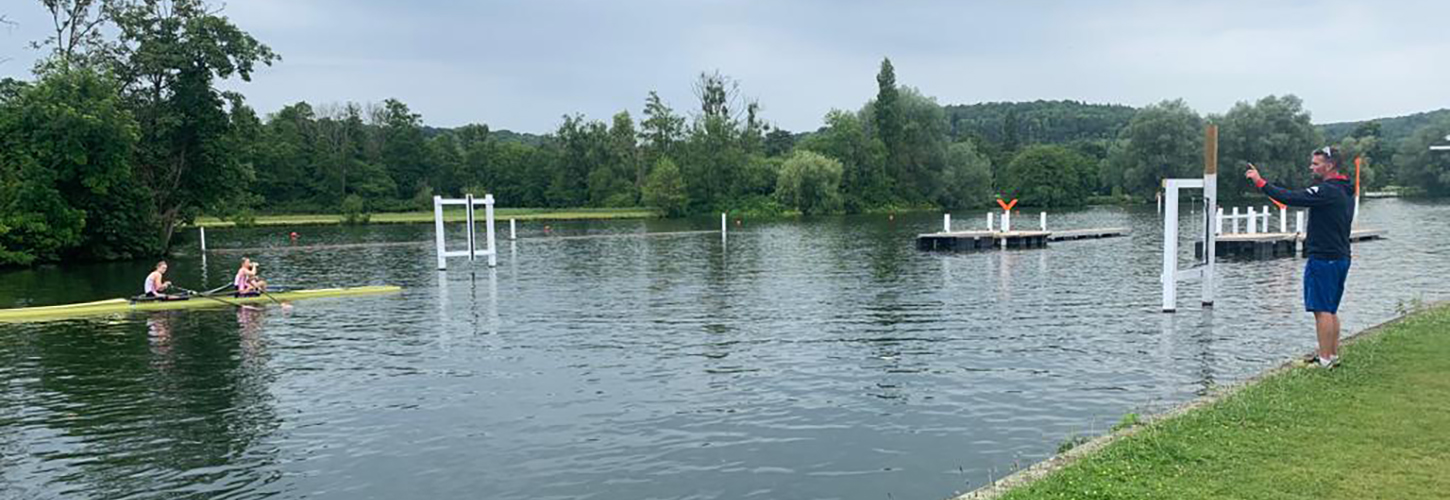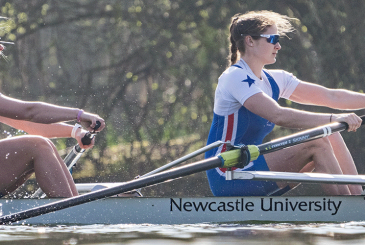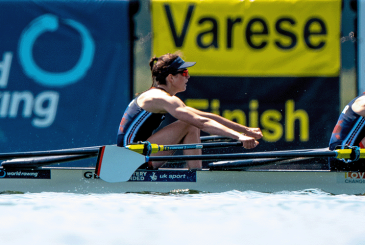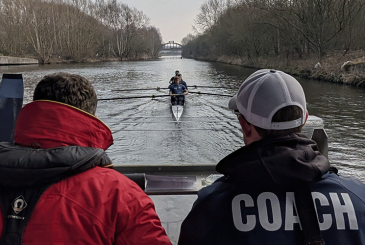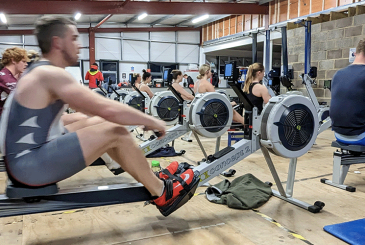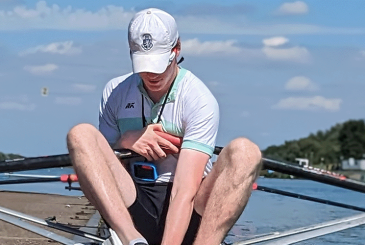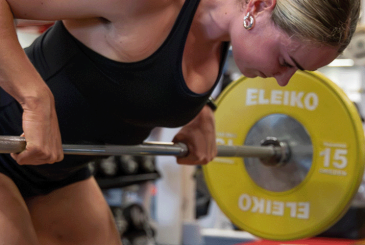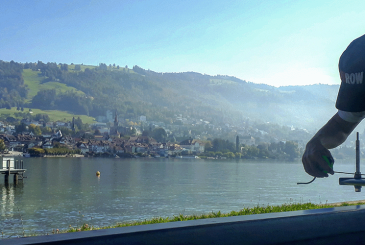In the run up to British Rowing Coaching Week (17-25 September 2022), three high-performance club coaches reflected on why they started coaching in the first place, their coaching philosophies, and their views on what success as a coach looks like.
Rich Chambers
Rich is Women’s High Performance Coach at Leander Club and has also coached GB U23 crews to medal success. He previously held coaching roles at Cambridge University BC and Oxford Brookes University BC. The three times Olympian, London 2012 silver medallist and two-times World Champion turned to coaching after retiring as an international rower in 2017.
What or who inspired you to become a coach?
I have always been fortunate to have great coaches since starting out in rowing. My first was Bobby Platt who introduced me to the sport at Coleraine Academical Institution and started me on my rowing journey. Each coach that I have had has brought something different to helping me not only develop as an athlete but as a person. Since starting coaching I have been privileged to work alongside some great coaches who have helped me make the transition from athlete to coach.
For me it is important that I never stop learning and exploring new ideas. I value opportunities to be in other coaches’ environments of all levels as I believe you can learn from a novice level coach through to an Olympic level coach.
What is your coaching philosophy?
When starting out coaching I never really thought about the Why! Through my time at Cambridge and Oxford Brookes working alongside student athletes, I came to realise that the specifics of coaching rowing was a small part of the job. Creating an environment where people can be great student athletes was key. Taking part in the British Rowing Level 4 course has helped me delve deeper into the philosophy of my coaching and has challenged me to understand more about why I coach. I have learnt that a ‘one size fits all’ approach does not work and that building individual relationships is key to helping athletes really flourish inside and outside of the training environment. I don’t claim to always be successful at this, however, being able to reflect has been a huge part in helping me develop and improve this area of my coaching.
What does success look like for you as a coach?
As an athlete I always assumed that when I got into coaching it would be all about the results. Instead I have learnt that there is so much more to coaching than that. As coaches we have a duty of care. It is important to help develop the person first and the athlete second. This is one of the greatest challenges when working with athletes who often focus on the end result.
I try and encourage athletes to have something outside of their own rowing training as I believe this creates a healthy life balance.
I am proud of what we have set up at Leander with our gap year program. It is not solely in place to give young people the chance to row in a high performance environment; we are also always looking at ways in which we can help these young people develop life skills which will help them beyond their rowing. I try and encourage athletes to have something outside of their own rowing training as I believe this creates a healthy life balance.
Rhona MacCallum
Rhona coaches the Junior Women at the Tideway Scullers School where she is the U19 Programme Discipline Lead for Women’s Sculling. She learned to row at Edinburgh University and maintains concurrent careers in both coaching and heritage charities.
What or who inspired you to become a coach?
Coaching provided a way to stay involved in a sport that had become a way of life when I stopped racing regularly. The thrill of watching someone master a new skill is addictive, and athletes’ incremental improvements are what inspires me now!
What is your coaching philosophy?
As a coach, know when to lead and when to support. My coaching style necessarily flexes to suit the athlete/situation but is rooted in knowledge of the individual and in clarity of communication. I believe in instilling personal responsibility for learning from every experience to encourage athletes to seek continuous improvement. I try to model this as a coach.
What does success look like for you as a coach?
Athlete retention; my coaching of juniors should be formative not summative. I aim to create an environment that is equal parts fun and challenging, in order that everyone takes as much pride and enjoyment in the process as they do in the results. This makes our training a privilege instead of a chore, and keeps us all engaged in what is in nature a repetitive sport.
When you get it right… you become the programme people want to join, not the one they want to beat.
When you get it right, it is obvious from the outside and you become the programme people want to join, not the one they want to beat.
James Loveday
James is a GB Rowing Team coach working with Paralympic athletes on the high performance pathway. He was previously the lead junior coach at Leander Club.
What or who inspired you to become a coach?
I have learned from everyone I have worked with. I once watched my dissertation supervisor while he was running a trampolining session with a group of youngsters. I appreciated the simplicity of his role, he communicated effectively, had eyes on the person throughout their routines and could spot the slightest fault in mid-air so he was ready to throw a safety mat on the trampoline. Clearly those people he worked with trusted him, he valued their feedback and used that to teach them a high level of skill. I had been coaching part-time around studying and that experience was a defining moment to consider coaching as a career.
What is your coaching philosophy?
Overall I aim to be person-centred, evidence based and open-minded. For me, person-centred coaching should be aimed at supporting an athlete toward their goals in an ethical way. With this in mind, it’s important that my coaching is based on a current knowledge/evidence that it will achieve the desired outcome for an athlete. For myself, my current knowledge comes from my own experience, and I’ve also been fortunate to learn a huge amount from some very experienced coaches and in formal education.
Finally, high quality coaching requires open-mindedness. It’s well understood that people learn and physically develop at different rates, and in Paralympic sport there are a host of impairments to consider when making coaching. Therefore, I use what I know to experiment, consider athlete feedback and others opinions to continue the learning process.
I want the people I coach to achieve their goals.
High performing coaches never stop learning and the Level 4 coaching qualification has been an ideal opportunity to challenge my knowledge as a coach.
What does success look like for you as a coach?
This has evolved over the years, and I have settled on the fact I want the people I coach to achieve their goals. With that in mind, the performance of the athletes is a driving force for me to get up and coach everyday, but it has to happen within my coaching philosophy.


